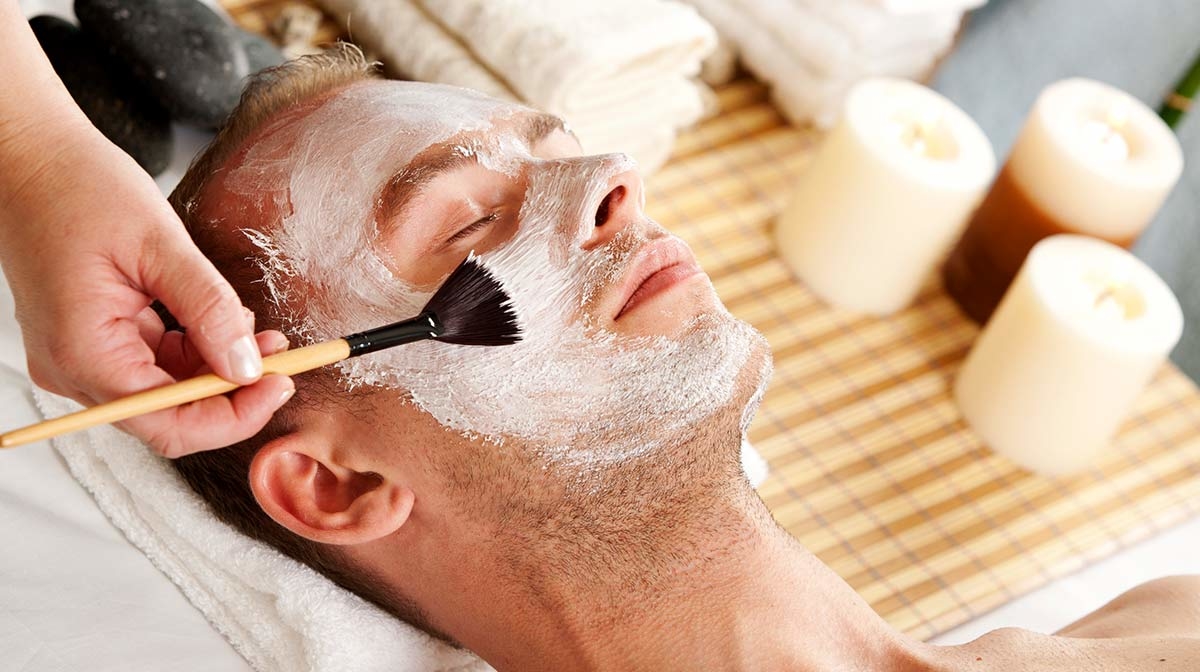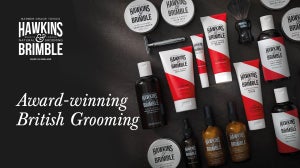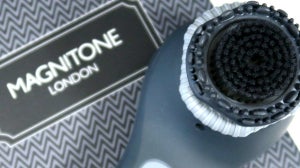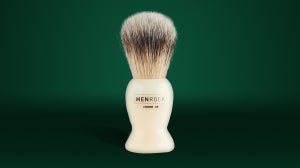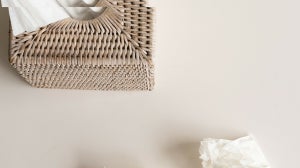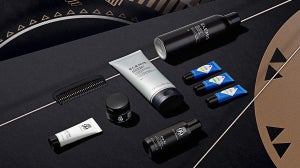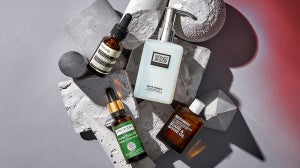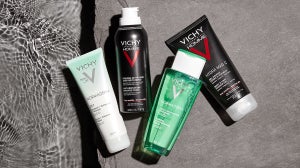
When it comes to men's skincare, the whole idea can be really overwhelming. Even though men's skin maintenance seems complicated, here at Mankind we've broken it down so you can figure out exactly which products you need to save your pennies and your skin!
Is a man's skin really any different from a woman's?
The basic structure of the skin is the same although a man's skin does tend to have a slightly thicker top layer (epidermis). Men also have stronger, thicker facial hair than women and produce more oil (sebum). This excess oil can block the pores and cause blackheadsand spots if the skin is not kept clean. There is also the problem of in-growing hairs on the face and neck, caused when hairs grow back on themselves leaving nasty bumps or spots. A simple skin care routine will help to keep skin clean and healthy and will go a long way to preventing such problems.
What is the best way to clean my skin?
The quickest and most thorough way to clean your skin is with a non-drying facial wash. A facial wash will dissolve excess oils and remove dirt and grime. This is especially important if your skin is regularly exposed to pollution. Massage the facial wash onto wet skin and then work around your face paying special attention to the sides of the nose and the dip in the chin. Always rinse off thoroughly with running water. Use a Facial Wash before you shave in the morning and before you go to bed at night or whenever you skin is dirty.
What's wrong with using soap?
Regular soap nearly always over-dries your skin and leaves it feeling tight and uncomfortable. It often contains strong fragrance that can irritate. The skin is finely balanced between acidity and alkalinity. This is known as the pH balance. Some soap is very alkaline and therefore disturbs this balance causing further irritation. Facial cleansing bars have ingredients that don't disturb this pH balance and are better for the skin than regular soap.
What can I do about dry skin?
Always moisturise after washing your face, and shaving. Chose a light-weight cream or lotion that will not overload the skin and won't block the pores (non-comedogenic). It should easily absorb leaving no greasy film on the surface of the skin. Moisturisers make the skin feel comfortable and supple. They protect from the environment and help to reduce signs of ageing. Also try using a facial scrubonce per week to remove dead skin cells and flaky patches.
What can I do about skin that's shiny and oily?
This type of skin can be hard to control especially when it's hot! Keep it clean by using a gentle but thorough facial wash twice a day. Use an exfoliator or scrub twice a week. If the shine comes back during the day, a little toner can help to keep it under control. Use a moisturiser that will leave skin matt and help regulate the oil production. Also try a deep cleansing clay mask once a week to lift excess oil out of the pores.
How can I get rid of blackheads?
Blackheads are small plugs of oil (sebum) that are lodged in the pore and turn black. They are more common on the nose, chin and forehead but can appear anywhere. They can be kept under control by thorough cleansing twice daily and exfoliating at least twice a week. If they are quite large you can remove them with a tissue. Steam your face over a basin of hot water and then with tissue around your fingertips gently put pressure each side of the offending blackhead until it comes out. (Never use too much pressure and avoid using fingernails or sharp instruments or you will cause scarring) Put anti-sceptic cream on the area to soothe and heal.
I get spots on my forehead and chin. How can I get rid of them?
Spotty skin is usually more common in teenagers but can carry on well into adulthood. Spots begin as tiny blackheads that come into contact with bacteria and become infected. They are best left alone as the infection can spread and the problem become worse. Clean skin thoroughly every day and avoid touching it with your fingers. Avoid using face cloths and keep towels clean and hygienic. Change your pillowcase regularly and avoid having a long fringe. Drink plenty of water and eat a healthy diet. Try a vitamin supplement to boost your resistance to infection. Use a gentle exfoliant and a face mask twice per week.
I've got spots, blackheads and sore lumps. Is this acne?
Yes, it sounds like you have acne. If the lumps are sore and inflamed there is infection present and you should see your doctor. Keep skin clean but avoid harsh chemical products that will dry and irritate. Try using a face maskand exfoliant but avoid scrubbing over broken skin.
My skin goes very red and blotchy. Does this mean it's sensitive?
Sensitive skin can be divided into two types: allergic and intolerant.
Allergic skin will react to harsh chemicals used in some shaving, skin or hair care products. It may also react to irritants in household, garden and industrial products as well as some foods and drink (including wine and beer!) When irritated the skin will go red and itchy. Always avoid harsh chemicals and look for products that are suited to sensitive skin.
Intolerant skin is usually fair and will burn in the sun. It will go red when touched and will be prone to looking ruddy and weathered when exposed to the elements. This skin type is prone to broken blood vessels and needs extra soothing and protection. Quite often sensitive skin is a combination of the two and extra care must be taken especially when shaving or when exposing to the elements.
My skin looks dull and tired. How can I bring it back to life?
We don't always realise the toll stress takes on our skin. Stress produces hormones in the body which when broken down release free radical chemicals that damage cells. Smoking has a similar effect as does alcohol and pollution. Dull skin needs boosting and reviving to make it look healthier and younger. Use an exfoliant or face scrub once or twice a week to remove dull, dead cells and then apply a skin brightening moisturiser to revitalise and rejuvenate.
Should I be using a scrub or exfoliator regularly?
These are the best products to instantly brighten and smooth your skin. A 'scrub' is a type of exfoliator which means it removes or 'exfoliates' dead cells from the surface of the skin. A face scrub is like a face wash but contains tiny particles that 'polish' the skin as you massage it. The particles can be made of anything from crushed shells or nuts to polythene beads. As you wash with the scrub it removes dead skin cells and debris revealing the smoother skin underneath. It will also help to release in-growing hairs and keep the skin really clean and healthy. Use once or twice a week but don't rub too hard. If your skin is easily irritated by shaving you may want to use the scrub only on the areas you don't shave. Use a body scrub all over the body and a face scrub (usually with smaller particles) on the face and neck.
Don’t forget to use SPF when necessary too!

